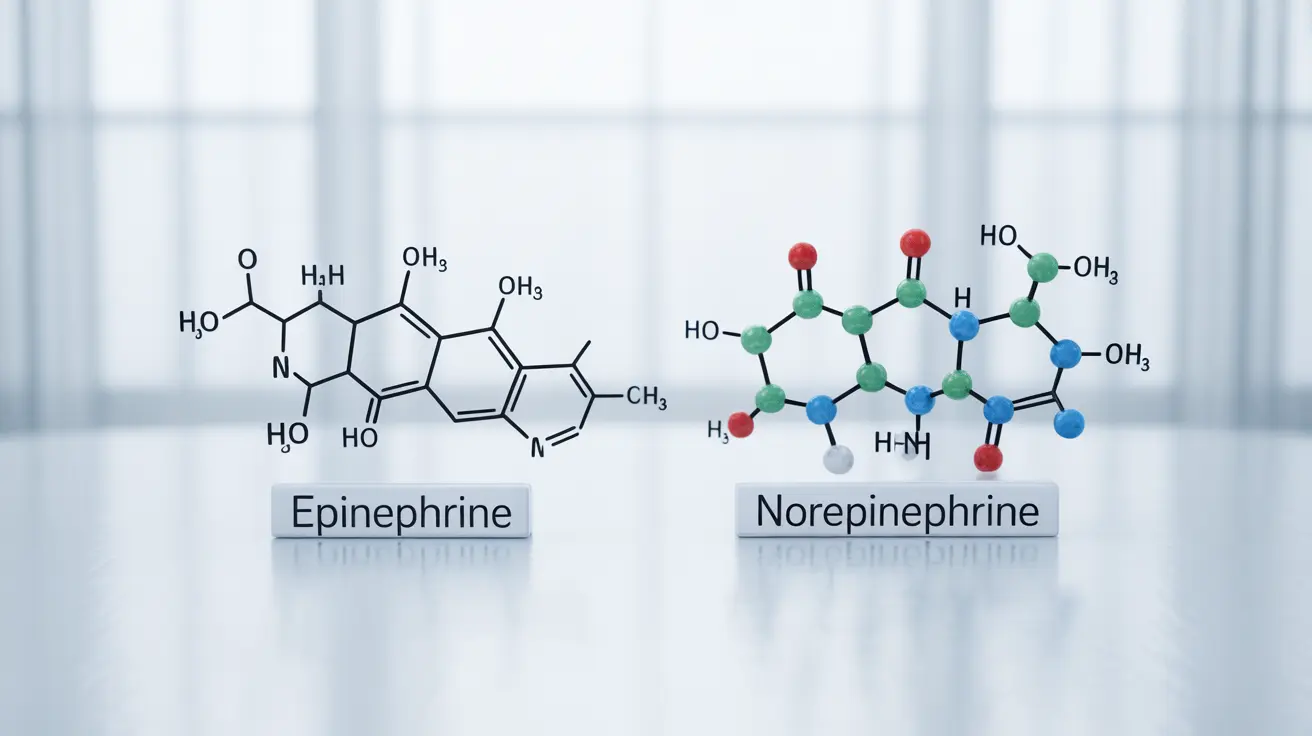Epinephrine and norepinephrine are crucial hormones and neurotransmitters that play vital roles in our body's stress response and daily function. While closely related, these chemical messengers have distinct characteristics and purposes that affect our health in different ways. Understanding their unique properties can help us better comprehend how our bodies respond to stress and various medical conditions.
In this comprehensive guide, we'll explore the key differences between epinephrine and norepinephrine, their specific functions, and how they impact our physical and mental well-being. We'll also examine their medical applications and ways to maintain healthy levels of these essential compounds.
Chemical Structure and Production
Both epinephrine (also known as adrenaline) and norepinephrine (noradrenaline) are catecholamines produced by the body. Epinephrine is synthesized in the adrenal medulla, while norepinephrine is primarily produced by both the adrenal glands and nerve tissues throughout the body. Their chemical structures are similar, with epinephrine having one additional methyl group compared to norepinephrine.
Primary Functions and Effects
Cardiovascular Impact
Both hormones affect the cardiovascular system, but their effects differ slightly. Epinephrine has a stronger impact on heart rate and cardiac output, while norepinephrine primarily affects blood vessel constriction and blood pressure regulation. Epinephrine tends to cause a more dramatic increase in heart rate, while norepinephrine's effects on blood pressure are typically more pronounced.
Metabolic Effects
Epinephrine has more significant effects on metabolism, including:
- Increased glucose production
- Enhanced fat breakdown
- Elevated metabolic rate
- Greater oxygen consumption
Norepinephrine's metabolic effects are more modest, focusing primarily on:
- Maintaining basic metabolic processes
- Supporting attention and alertness
- Regulating sleep-wake cycles
Medical Applications
Epinephrine Uses
Epinephrine is commonly used in medical settings for:
- Severe allergic reactions (anaphylaxis)
- Cardiac arrest
- Severe asthma attacks
- Local anesthesia procedures
Norepinephrine Uses
Norepinephrine is typically administered for:
- Severe hypotension
- Septic shock
- Maintaining blood pressure during critical care
- Certain types of cardiac dysfunction
Impact on Mental Health
Both hormones significantly influence mental health and cognitive function. Norepinephrine plays a crucial role in attention, arousal, and mood regulation, while epinephrine is more involved in the immediate fight-or-flight response. Imbalances in either can contribute to various mental health conditions, including anxiety and depression.
Maintaining Healthy Levels
Several lifestyle factors can help maintain healthy levels of these important compounds:
- Regular exercise
- Adequate sleep
- Stress management techniques
- Balanced nutrition
- Mindfulness practices
Frequently Asked Questions
What is the main difference between epinephrine and norepinephrine in the body? Epinephrine primarily triggers the "fight-or-flight" response and has stronger effects on heart rate and metabolism, while norepinephrine mainly regulates blood pressure and attention. Epinephrine is produced exclusively in the adrenal glands, whereas norepinephrine is also produced in nerve tissues.
When would a doctor use epinephrine instead of norepinephrine, and what are these medications used to treat? Doctors typically use epinephrine for acute emergencies like severe allergic reactions, asthma attacks, and cardiac arrest. Norepinephrine is more commonly used for maintaining blood pressure in critical care situations and treating shock.
How do epinephrine and norepinephrine affect heart rate, blood pressure, and energy levels during stress? During stress, epinephrine causes a more pronounced increase in heart rate and energy levels, while norepinephrine primarily increases blood pressure through blood vessel constriction. Both hormones contribute to increased alertness and energy availability.
Can imbalances in epinephrine or norepinephrine levels cause health problems like anxiety, depression, or high blood pressure? Yes, imbalances can contribute to various health issues. Low levels may lead to depression and fatigue, while excessive levels can cause anxiety, high blood pressure, and sleep problems. Chronic stress can disrupt the normal balance of both hormones.
What lifestyle changes or natural methods can help regulate norepinephrine levels for better mood and alertness? Regular exercise, consistent sleep patterns, stress management techniques like meditation, a balanced diet, and limiting caffeine intake can help regulate norepinephrine levels naturally. Social support and engaging in enjoyable activities also play important roles in maintaining healthy hormone balance.




